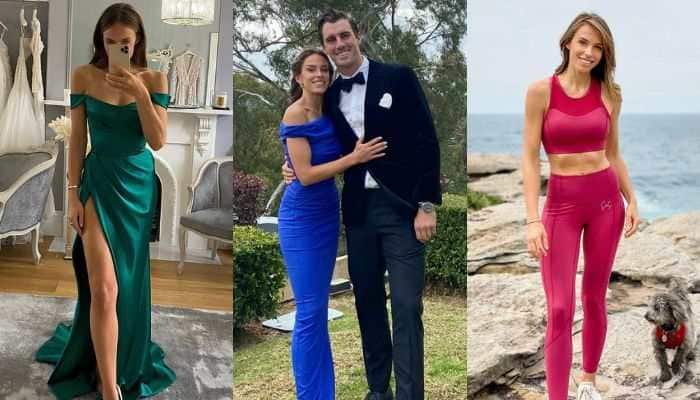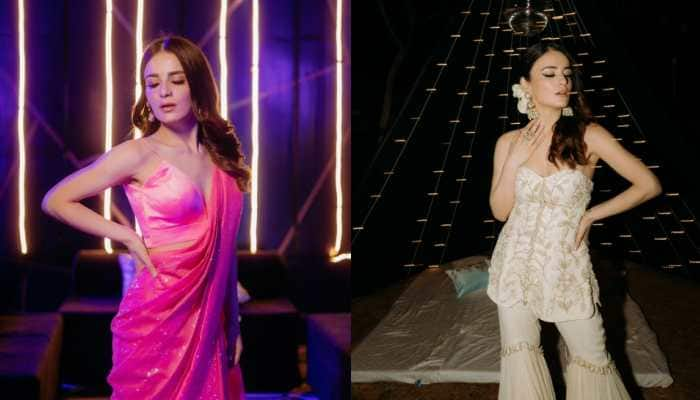Victoria and Abdul movie review: Intriguing and odd
Based on "mostly" true facts, the film is drawn from the book penned by Sharbani Basu, which was inspired by volumes of the queen's handwritten notes in Urdu and by the discovery of Abdul Karim's journals in 2010.
Trending Photos
)
Stephen Frears' Victoria and Abdul, is a witty telling of the unlikely bond between the aged Queen Victoria of England, the Empress of India, and a commoner, Abdul Karim, whom she appoints as her Urdu teacher and whom she fondly addresses as Munshia.
Based on "mostly" true facts, the film is drawn from the book penned by Sharbani Basu, which was inspired by volumes of the queen's handwritten notes in Urdu and by the discovery of Abdul Karim's journals in 2010.
Charm and curiosity propels this narrative. The lead pair -- Judi Dench as Queen Victoria and Ali Fazal as Abdul Karim -- are charming and their relationship is definitely intriguing.
The tale begins in Agra in 1887, where local British officials to honour their Queen decide to send an Indian functionary to Britain to present her with a Mohur a ceremonial gold coin. Knowing her penchant for tall men, two local civil servants are selected. One of them is Abdul Karim.
How Abdul catches the Queen's fancy, forges a bond with her and upsets the royal sycophants of Victoria's Son Bertie, The Prince of Wales - heir of the royal throne, forms the crux of this tale.
The screenplay written by Frears and Lee Hall is dubiously wobbly as it shift gears from moody to comedy to drama. While the premise is interesting, it is Frears' light-hearted treatment of the narrative that disappoints. The disdainful manner in which the queen is initially presented, the cheap gags about the Queen's bowel movements, the lack of medal-bearing trays at Windsor Castle all add to the disillusionment.
Also the tone and taste of few dialogues are not in congruence with the time and characters of that era.
But it is how Abdul makes his favourable first impression to the Queen by ignoring the instructions of royal etiquette, his failure to disclose his marital status, his religion, and health issues that cause ripples in the evolving friendship and the vocal objections of the Queen's staff are few moments that make the film worthwhile.
With his expressive eyes, coy smile and heart-throb looks, Ali Fazal as Abdul Karim is exceptional. He portrays his part sincerely, but his character is flatly one-dimensional.
Judi Dench in widow's weeds as Queen Victoria is brilliant. She portrays the grace and earthy scorn of her complex character effortlessly. It is delightful to see her character change from a dreary old lady to a buoyant giddy-headed figurehead with girlish charm.
The duo are supported by; Tim Pigott Smith as Henry Pinseberry the head of the Royal household, Michael Gambon as the Prime Minister, reciting a litany of downbeat news to the Queen, Eddie Izzard with his gruff beard and indignant eye-brows as Bertie; all behave in a brusque high-handed manner as if participating in a spoof.
On the technical front, Alan Macdonald's production design and Consolata Boyle's costumes give a fair representation of the period which are astutely captured by Cinematographer Cohen's camera work. But with some moody, some shaky and some brilliant shots he offers a mixed bag of visuals and Thomas Newman's music subtly enhances the viewing experience.
Overall, Victoria and Abdul offers mixed reactions. It is pleasantly sweet but annoyingly off-putting.
By Troy Ribeiro







)
)
)
)
)
)
)
)
)
)
